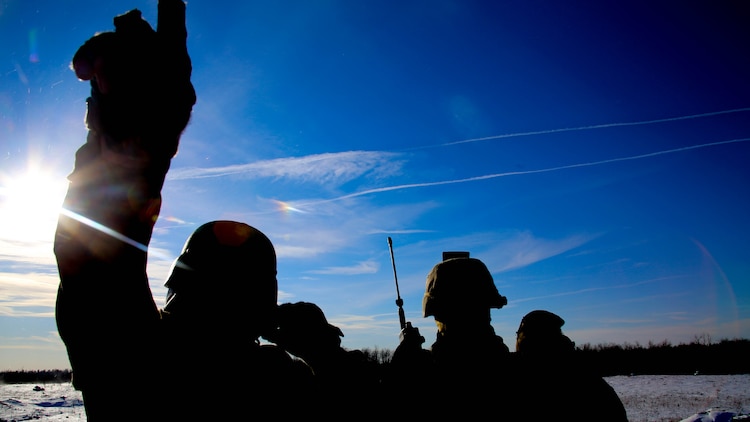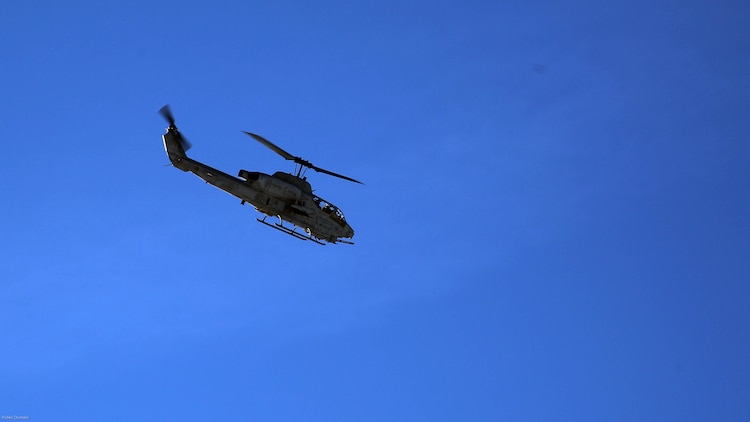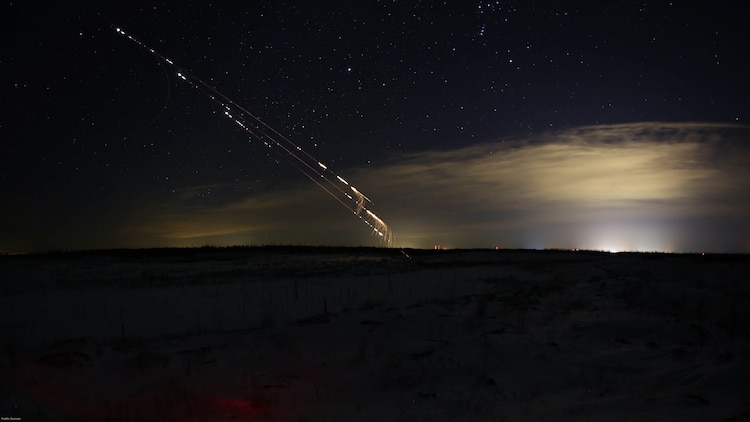By Cpl. Mackenzie Gibson, Marine Corps Air Station Cherry Point




MARINE CORPS AIR STATION CHERRY POINT, N.C. — No great battle in history has ever been won by individual effort. Without the determination of the team as a whole, even the greatest army would crumble. What better way to breed a team mentality than putting a group of Marines in the face of adversity?
Facing relentless cold temperatures and waist-high snow, Marines assigned to 1st Air Naval Gunfire Liaison Company, 1st Marine Expeditionary Force Headquarters Group, 1st Expeditionary Force, worked in conjunction with Marines assigned to Marine Light Attack Helicopter Squadron 269, Marine Aircraft Group 29, 2nd Marine Aircraft Wing, to complete close air support operations aboard Fort Drum, N.Y., March 16.
“We’re helping HMLA-269 grow their proficiency in their close air support tactics and cold weather operations with inserts and extractions in urban and non-urban environments,” said Staff Sgt. Randall Lester, a fire support chief with 1st ANGLICO.
According to Lester, it takes a team of joint fires observers and joint terminal attack controllers to bring the aircraft from their home location to a forward position, and also guide the action of their attacks to the targeted areas. Without the men on the ground, the pilots would have much more difficulty finding their objectives.
“For us in the back, it’s very hard to see our tracers and impacts when firing on targets,” said Sgt. Ty Morgan, a crew chief with HMLA-269. “So we really have to flex our fundamentals of aerial gunnery skills and rely on the ground support to get us where we need to go.”
Coming from sunny California, Lester stated that his unit does not conduct cold weather training very often and the best part is getting the experience while also working with HMLA-269 to become more skilled in their duties.
“HMLA-269 is an extremely proficient group of aviators and crew members,” said Lester. “Their close air support tactics have been on point this entire trip. They are a group of great professionals who absolutely know their jobs inside and out.”
With only a few days left of training, unit morale remains high and operations are in full swing. It is clear that no matter what the situation is, the Marines will find a way to make it through any challenges that come their way.
“We all understand that we’re freezing out here, but it really builds unit cohesion and gives us something in common that we try to work through,” said Morgan. “Sometimes, it isn’t exactly fun. But its good training and we work well out here as a team.”
